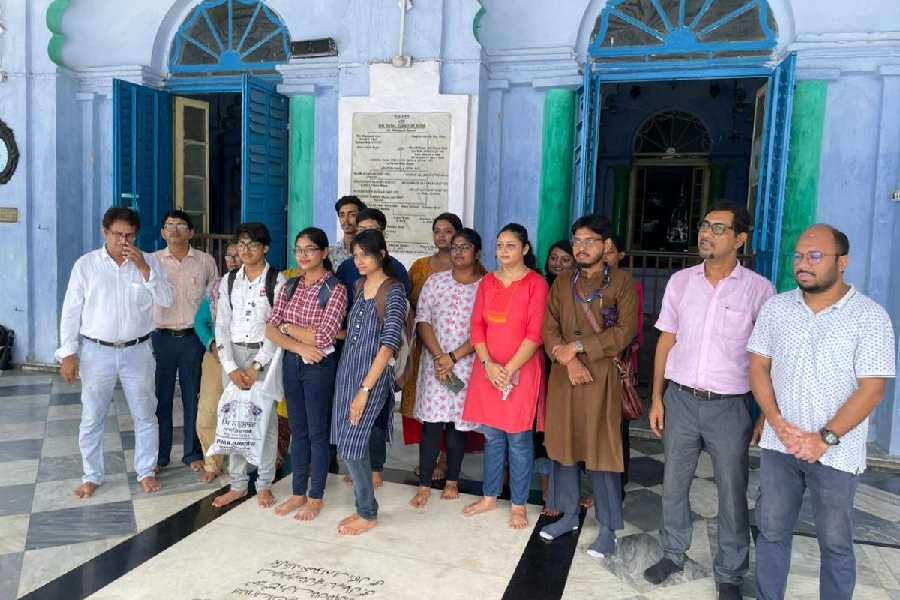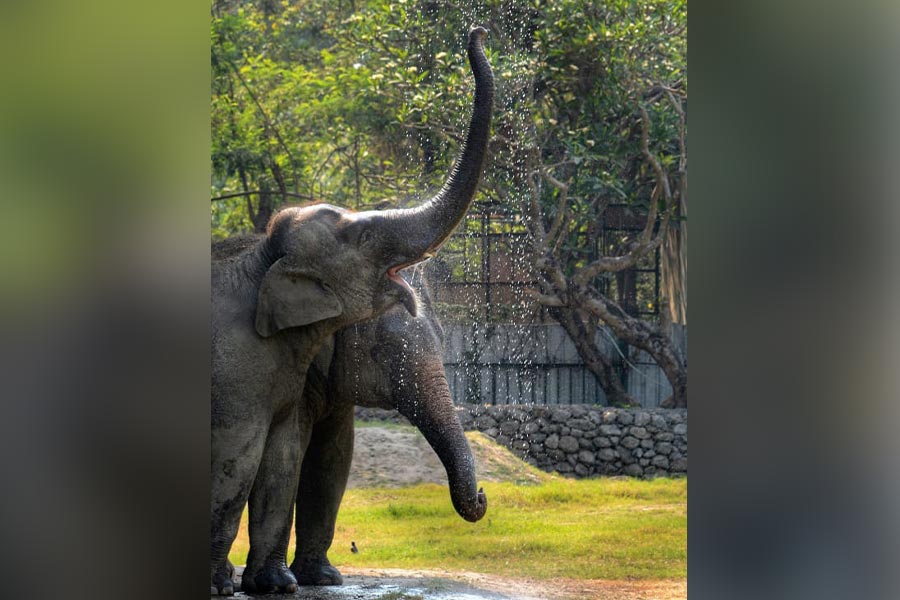Indian heritage is not limited to the Taj Mahal or the Konark temple. The small neighbourhood church, the mosque at the corner of the road or the temple in the middle of the market are mighty important because they are an integral part of our pluralistic heritage.
A programme organised to celebrate the bicentennial birth anniversary of Wajid Ali Shah, the last Nawab of Awadh and a great patron of the arts, saw a veteran historian explaining the meaning of heritage to students who packed a college auditorium.
“Indian heritage is not a single block of stone. It is made of many blocks. It is, in essence, pluralistic, like the idea of India. We have different religions. There is no one Indian language, there are several. A Punjabi lunch is very different from a Malayali lunch. Our differences make our heritage,” said Gautam Sengupta, former director-general of the Archaeological Survey of India.
“Heritage must also be rooted in the ground we stand on. Thinking of heritage, we must not limit ourselves to the idea of the Taj Mahal or Konark. The small temple or mosque or church in our locality is also important. You should be legitimately proud of it. You must own it, because it is an integral part of the composite pluralistic heritage of India,” said Sengupta, also a former teacher of history at Visva-Bharati.
The venue of the programnme provided context to what Sengupta said. He was speaking at an auditorium of the Government Girls General Degree College in Ekbalpore.
One hundred and sixty-seven years ago, exiled from Lucknow by the British, Wajid Ali Shah landed in a ghat in Metiabruz, around 2km from where the college stands now, with an elaborate entourage. He was just 34. He spent the remaining 26 years of his life and is still buried in Metiabruz, a locality that came to be defined by him.
His arrival would change the character of the entire area and life in cosmopolitan Calcutta. From a southwestern suburb, Metiabruz would be known as mini-Lucknow.
Sengupta said one must learn to understand the history of her own locality in order to be able to appreciate the history of a different neighbourhood.
“We must accept that the locality we live in, the village, town or city, is equally important in our understanding of heritage. Our first task is to know our neighbours and neighbourhood. The history of every locality is somewhat different from the other. Unless we develop an understanding of our own locality, we cannot understand another locality. Since we cannot appreciate our own history, heritage and tradition, we often fail to appreciate the history, heritage and tradition of other people. This creates misunderstanding and bitterness,” he said.
The principal of Government Girls General Degree College, Syeda Shariqatul Moula Alquadri, said Wajid Ali Shah’s impact was “enormous, not only on Metiabruz but entire Calcutta”.
Before the indoor schedule of the programme, a heritage walk was organised by Know Your Neighbour, a campaign that aims to promote increased interactions between different communities for communal amity.
Braving persistent rain, more than 30 people, most of them students, walked along the winding lanes of Metiabruz. The stops included Sibtainabad Imambara, a smaller and less ornate version of the Imambara in Lucknow and the resting place of the nawab. Bichali Ghat, where Wajid Ali Shah’s steamer first docked on May 13, 1856, and Shahi Masjid, which used to be the private mosque of the king, were also among the stops for the group.
Over a dozen students of English literature from Behala College were part of the walk. “Our college is a 15-minute drive from here. Many of the students have passed by these areas. But most of them came to know about the historical places for the first time. This ignorance about our neighbours leads to bias. We need to cross the threshold,” said Arijit Mukherjee, the head of the department of English at the college.
The principal of Behala College, Sharmila Mitra, said: “Knowing your neighbourhood and its communities is of utmost importance. This helps in creating communal harmony.”
Sabir Ahamed, the driving force behind the Know Your Neighbour campaign, said: “The man behind the introduction of potato in biryani and a nawab with many wives are the two lasting memories of Wajid Ali Shah. Most of us are ignorant about him. Like Metiabruz, Wajid Ali Shah has also remained in the margins. More educational institutes should come forward to organise such programmes.”






